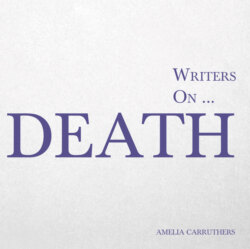Читать книгу Writers on... Death (A Book of Quotes, Poems and Literary Reflections) - Amelia Carruthers - Страница 42
На сайте Литреса книга снята с продажи.
Оглавление[no image in epub file]
38
O weep for Adonis - He is dead.
Peace, peace! he is not dead, he doth not sleep, He hath awaken'd from the dream of life; 'Tis we, who lost in stormy visions, keep With phantoms an unprofitable strife, And in mad trance, strike with our spirit's knife Invulnerable nothings. We decay Like corpses in a charnel; fear and grief Convulse us and consume us day by day, And cold hopes swarm like worms within our living clay.
He has outsoar'd the shadow of our night; Envy and calumny and hate and pain, And that unrest which men miscall delight, Can touch him not and torture not again; From the contagion of the world's slow stain He is secure, and now can never mourn A heart grown cold, a head grown gray in vain; Nor, when the spirit's self has ceas'd to burn, With sparkless ashes load an unlamented urn.
– Percy Bysshe Shelley (1792 - 1822), 'Adonais: An Elegy on the Death of John Keats' (1821). Shelley was one of the major English Romantic poets, regarded by some critics as the finest lyric poet in the English language. Keats and Shelley were good friends, and in 1820, on hearing of his illness from a friend, Shelley invited Keats to join him at his residence in Pisa. Keats replied with hopes of seeing him, but instead made plans to travel to Rome - and the two never met again.
